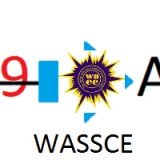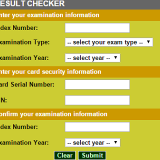5 Critical Tips to Crafting that Perfect First Career Resume
Let’s take for instance; you are about to graduate, and there are lots of job fairs on your campus. You’ve come across positions in your field advertised online, and so you try to craft a resume that will make you an attractive candidate. But for some reason, you don’t know-how to write a good resume when you have no experience at all-in your chosen career field.
Worry not, because you’re not alone. Several others have been where you are. They’ve struggled with how to create a resume for a first job, and they all landed their first career jobs without any experience. Thus, as a new graduate with limited experience, you can still make a great first impression with your resume.
Here are five tips that will help your resume engage a reader — either a recruiter or a hiring manager:
Pick the Right Font and Size
Your choice of font will be the very first thing a reader sees. Use a font style that suits the organization you’re applying for. If the company is established and is on the conservative side, then you should use a standard font — Arial, Times New Roman, or Calibri. 10-point is the most common; however 12-point also works if you want to fill space. Do not go beyond 12-point, otherwise; it’d look like you are trying to just fill up the page. For more progressive companies, such as a tech start-up, you should get more creative with the fonts, the color and the design. Use your good judgement.
The Top Third of Your Resume
In many instances, this is the only part of a resume that gets read, especially if it is something that engages the reader and makes them want to continue. Here is what should be in the top third:
Contact Information
Your name should be clearly represented at the top of your resume. Below your name, place your email address, your phone number and a link to your LinkedIn profile (yes, you need to be on LinkedIn). If you have developed a website with a portfolio, that is great — be sure to provide a link to it somewhere in the body of your resume. Do not use that email address that you created for “fun” in college, instead; set-up a separate professional Gmail account that you’d use only for your job search.
Objective and/or Summary Statement
The verdict is still out on these. If they are done right, they can capture the attention of a reader. If they are done poorly, it’d be bad on your resume. Here’s the thing:
- A professional summary should not be on your radar. It is a piece that is written by someone who has experience and background under his/her belt and provides a summary of that.
- A career objective is another matter. The problem with a career objective is that the applicant usually constructs it based upon his/her goals, which is wrong. If you decide to craft a career objective, you will need to address what the organization needs, not what you want. For instance, “seeking an entry-level IT position in which I can grow and move into management”, this is a bad objective. But “seeking an entry-level IT position in which I can assist an organization as it updates and improves its network security and administration”, this is a good objective statement, more so, when the job posting speaks specifically to network security expertise.
As you can probably guess, your career objective will change for each position opening to which you submit a resume. Your focus must be on the potential employer’s need and should address the tasks/skills listed.
If you are struggling with an objective statement, you can get professional help from Larnedu or resumescenter.com
Education
The structure of a resume for a student entering the job market will not be the same as someone with a professional experience. Start with your education, as it may be your biggest accomplishment thus far, especially if you have a 3.0 GPA or better. If your GPA is lower, don’t mention it. But you can do a lot with your coursework. You can list those courses which relate specifically to the skills/tasks of the opening. If you have related research papers or articles/blog posts that you have in a portfolio, insert the link in this section. Generally, you will not want to include your high school education, unless it was unique and relevant in some way — graduation from a magnet school, for example, that focused on the skills you continued to pursue in college.
Experience: Your Activities During College Years
The best feeling anyone would have, will be if you have had an internship in your career field; especially if your tasks relate to those listed in a job posting. With that inclusive, you’d need to also sit back and do some serious thinking about what else you can add.
Take a look at the job posting and specifically the 3-5 skills or responsibilities that are listed. What have you done that can relate to them?
Remember as well that most companies/organizations are also looking for some “soft” skills, including problem-solving, communication, taking initiative and leadership skills. You cannot simply say that you have these skills. Part of knowing how to write a resume for a first job is finding concrete examples that reflect your skills.
List of Skills
If you need more space to fill, you may want to include a list of skills that might include software or programs with which you are proficient.
 About the author: Veronica Wright is a professional career coach from Nashville, TN. She has 10 years of experience in career consulting and has stories of success from more than 80 countries of the world. Her life credo: “You love your job when you stop hating Mondays”.
About the author: Veronica Wright is a professional career coach from Nashville, TN. She has 10 years of experience in career consulting and has stories of success from more than 80 countries of the world. Her life credo: “You love your job when you stop hating Mondays”.
















